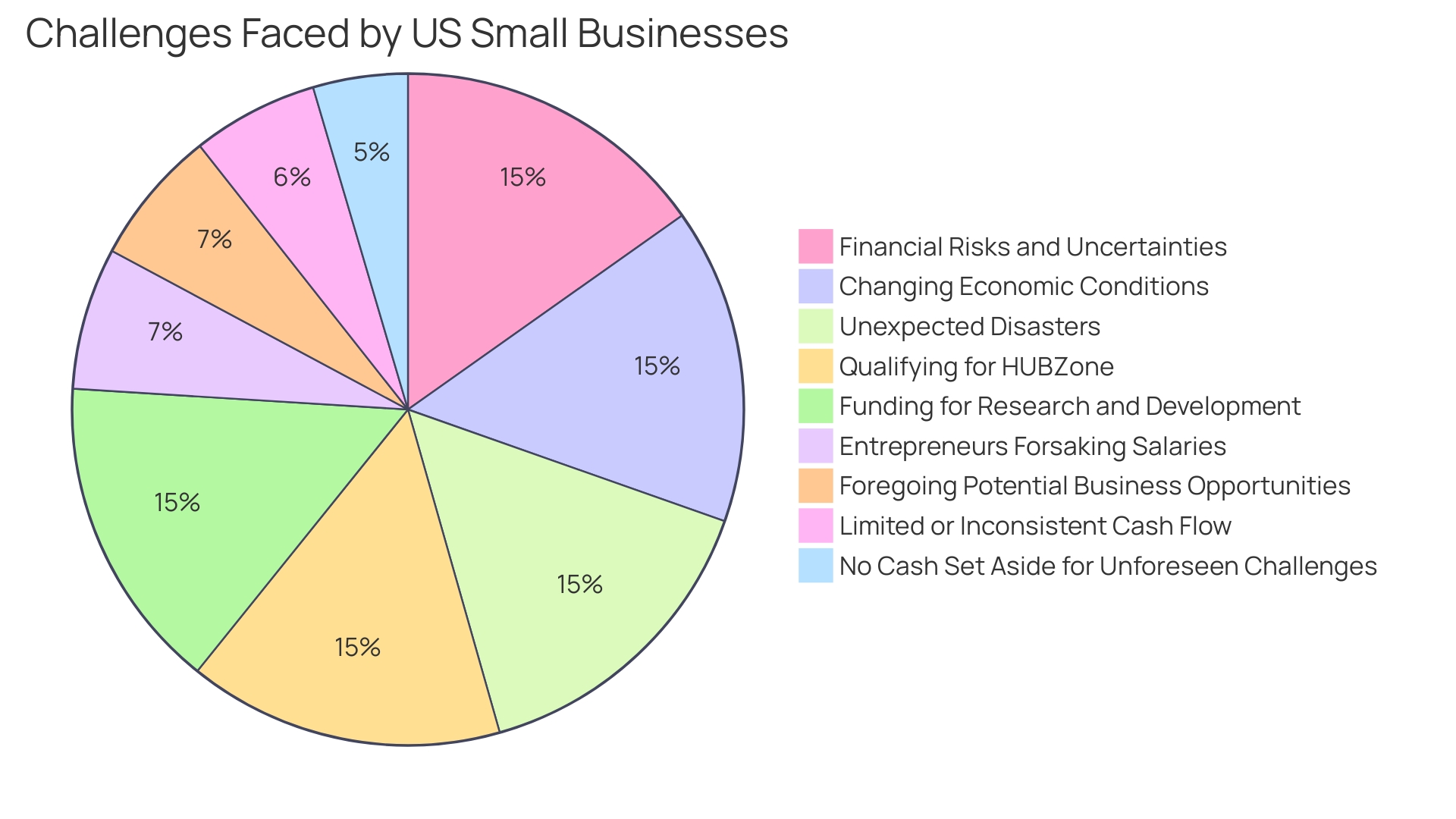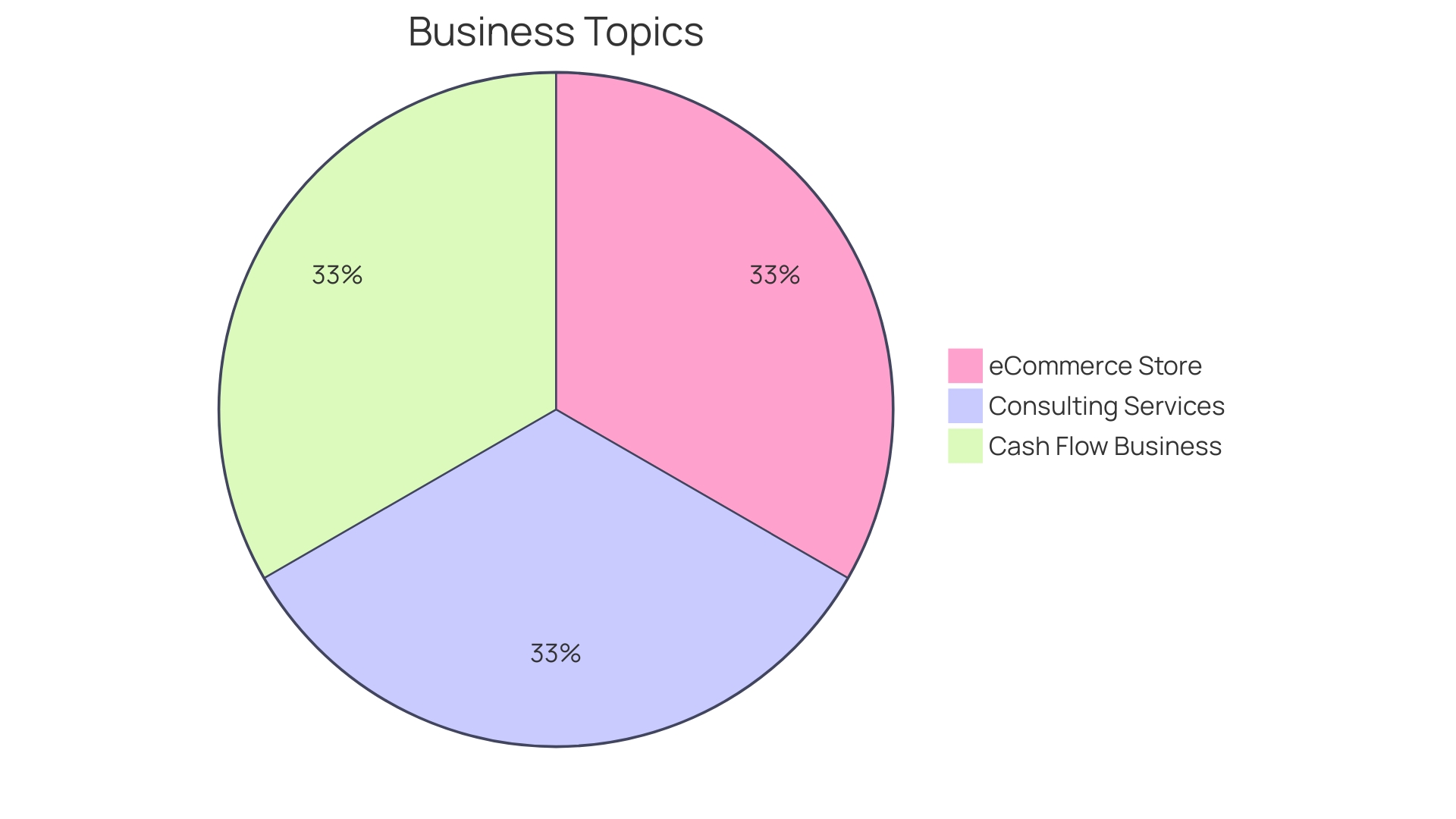Introduction
Small businesses face numerous challenges that can hinder their success and growth. In this article, we will explore three key reasons why small businesses struggle and provide practical advice and solutions to overcome these obstacles.
The first reason is the lack of funding or working capital. Securing sufficient funding and maintaining adequate working capital are critical for small businesses to operate effectively and respond to unexpected economic shifts. We will highlight the impact of limited cash flow on small businesses and discuss innovative funding options and strategies to enhance funding opportunities.
The second reason is poor management and a lack of business acumen. Navigating the complexities of small business management requires not only dedication but also a shrewd understanding of the market and adaptable leadership. We will delve into the importance of effective communication, continuous learning, and strategic planning in overcoming management challenges and driving business success.
The third reason is poor planning and cash flow management. Inaccurate sales forecasts, thin cash reserves, and subpar budgeting practices can create liquidity gaps and hinder the financial health of small businesses. We will provide insights into establishing a strong financial planning framework, analyzing financial statements, and embracing a lean operational model to optimize cash flow and ensure profitability.
By addressing these three reasons, small business owners can overcome common obstacles and position themselves for success in a competitive business landscape. Stay tuned as we delve deeper into each reason and provide actionable advice to help small businesses thrive.
Reason 1: Lack of Funding or Working Capital
Securing sufficient funding and maintaining adequate working capital are critical challenges for small businesses. These financial hurdles can significantly affect their ability to operate effectively, invest in growth, and respond to unexpected economic shifts. A study, "Money Matters: The Impact of Economic Conditions on the Cash Flow of US Small Businesses," highlights that 40% of surveyed businesses faced limited or inconsistent cash flow.
Additionally, 30% lacked reserves for unanticipated financial challenges, leading 45% to sacrifice their own salaries and 43% to miss out on new business ventures.
Edna's narrative, as a salon owner employing one person, underscores the personal impact of these challenges. Despite her entrepreneurial success, she represents many small business owners navigating the complexities of funding and operational management.
Recent developments, such as the Covid-19 pandemic, have exacerbated these challenges, with a third of small firms experiencing existential threats in the past five years. Yet, less than half sought external advice or support for crisis planning. The Fiserv Small Business Index offers a glimmer of hope, signaling resilience amid economic shifts and predicting a positive outlook for small businesses.
Innovative funding options, such as leveraging online platforms for visibility and networking, can be pivotal for startups. Moreover, improving financial records and establishing relationships with local banks can enhance funding opportunities. Debt financing remains a popular option, as it doesn't require business owners to give up equity.
The report by Intuit reveals a concerning reliance on credit cards by small businesses, with post-pandemic spending on credit cards increasing by 20% and monthly payments, including interest, by 26%. This reliance speaks volumes about the financial tightrope small businesses walk, with employment in this sector remaining particularly vulnerable despite an overall uptrend in employment.
In conclusion, the current economic landscape underscores the necessity for small businesses to explore diverse funding avenues and employ robust financial strategies to thrive amidst challenges.

Reason 2: Poor Management and Lack of Business Acumen
Navigating the complexities of small business management demands more than dedication; it requires a shrewd understanding of the market and an adaptable leadership approach. For instance, consider the case of a key employee in the niche market of 'man cave' essentials who was instrumental in driving pinball machine sales, which constituted nearly half of the company's revenue. The decision to let him go due to a disagreement over working hours resulted in a significant drop in sales, illustrating the delicate balance between management decisions and business outcomes.
Small businesses, accounting for a staggering 99% of all companies and half of employment opportunities, often reflect the passion of individuals who bring unique skills or hobbies into their entrepreneurial ventures. Yet, this passion must be coupled with the acumen to navigate crises—like the one-third of small businesses that faced existential threats in the past five years. Surprisingly, fewer than half sought external advice or support to plan for such crises, underscoring the importance of openness to learning and seeking guidance.
The ability to sell, a fundamental skill highlighted by Mark Cuban, is crucial for small business owners. This encompasses not just the sales of products or services but also the ability to sell ideas and strategies to stakeholders. Whether it's convincing investors of a project's potential or employees of a new process's benefits, effective communication is a linchpin for success.
This skill set is particularly vital in the early stages of a business, where everything from securing financing to customer acquisition involves persuasive selling.
Moreover, the agility to pivot to new business models, as one in five small firms had to during the pandemic, demonstrates the need for a structured process to listen, assess, and implement change. Whether it's a merger, acquisition, or a shift in operational strategy, such adaptability can be the difference between thriving and surviving.
In essence, the blend of continual learning, strategic planning, and effective communication forms the backbone of successful small business management. It's not just about avoiding poor decision-making; it's about embracing a dynamic leadership style that can withstand the pressures of changing technologies, economic shifts, and market demands.
Reason 3: Poor Planning and Cash Flow Management
Navigating the financial waters of small business ownership requires a strategic approach to cash flow management. Inaccurate sales forecasts, thin cash reserves, and subpar budgeting practices are common culprits that create liquidity gaps and drive business owners towards external financing solutions. To counter these issues, it's imperative to establish a strong financial planning framework and maintain vigilant oversight of cash flow dynamics.
Scrutinize your financial statements; they are the compass that points towards profitability and fiscal health. Metrics such as gross profit margin and operating costs reveal opportunities for financial optimization. Furthermore, understanding your break-even point through analysis ensures you know when your venture begins to turn a profit.
A study by Intuit highlights the repercussions of slow-paying customers and high fixed costs, which are typical triggers for cash flow predicaments.
Embracing a lean operational model with low overhead costs is a hallmark of businesses with commendable cash flow, as highlighted in 'Money Matters: The Impact of Economic Conditions on the Cash Flow of US Small Businesses'. This report sheds light on the stark reality that 40% of surveyed businesses struggled with inconsistent cash flow, while nearly a third had no reserves for unforeseen challenges. The strategic importance of cash flow is further emphasized by the fact that 45% of business owners have at times forgone their salaries to keep their businesses afloat.
To avoid such drastic measures, small business owners can look towards models with predictable income streams, such as eCommerce and consulting services, which offer low startup costs and the potential for recurring revenue.

Conclusion
Small businesses face significant challenges that hinder their success and growth. In this article, we explored three key reasons for their struggles and provided practical advice to overcome these obstacles.
The first reason is the lack of funding or working capital. Limited cash flow can impact small businesses' ability to operate effectively. We discussed innovative funding options and strategies to enhance funding opportunities.
The second reason is poor management and a lack of business acumen. Effective communication, continuous learning, and strategic planning are crucial in navigating small business management. Being adaptable and agile is essential in the face of changing technologies and market demands.
The third reason is poor planning and cash flow management. Inaccurate forecasts and subpar budgeting create liquidity gaps. We provided insights into establishing a strong financial planning framework, analyzing statements, and embracing a lean operational model.
By addressing these reasons, small business owners can overcome obstacles and position themselves for success. Explore diverse funding options, embrace continuous learning, and establish a strong financial planning framework. With confidence and practical advice, small businesses can thrive in a competitive landscape.
Take the necessary steps to drive your small business towards success.
Take the necessary steps to drive your small business towards success.




